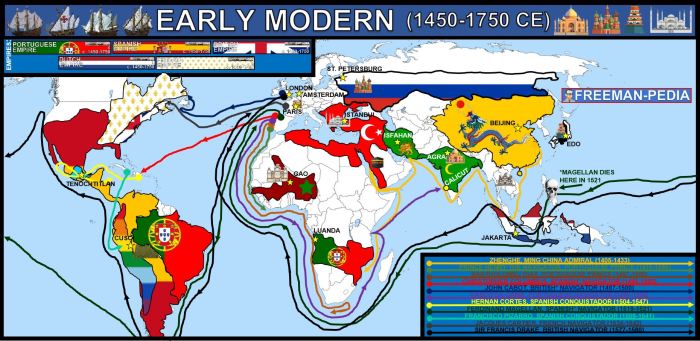Embark on a journey through time with our labeled map of ancient Greece, where history and culture intertwine to reveal a civilization that shaped the very fabric of Western civilization.
From bustling cities to architectural wonders, our map unveils the geographical and historical tapestry of this extraordinary era, inviting you to discover the origins of democracy, philosophy, and artistic masterpieces.
Historical Overview
Ancient Greece, the birthplace of Western civilization, played a pivotal role in shaping the intellectual, artistic, and political landscape of the world. Its legacy continues to resonate in modern societies.
The unique geographical features of ancient Greece, including its mountainous terrain, numerous islands, and extensive coastline, influenced its development. The rugged terrain fostered the emergence of independent city-states, while the sea provided opportunities for trade and cultural exchange.
Timeline of Key Events and Periods
Ancient Greek history can be divided into several key periods:
- Minoan Civilization (c. 2700-1450 BCE):A flourishing civilization on the island of Crete, known for its advanced architecture, art, and written language.
- Mycenaean Civilization (c. 1600-1100 BCE):A mainland civilization centered around the city of Mycenae, characterized by its fortified palaces and warrior culture.
- Greek Dark Ages (c. 1100-800 BCE):A period of decline following the collapse of the Mycenaean civilization, marked by population displacement and loss of literacy.
- Archaic Period (c. 800-500 BCE):A time of economic growth, political reform, and cultural revival, including the development of the Greek alphabet and the rise of city-states.
- Classical Period (c. 500-323 BCE):The golden age of ancient Greece, marked by the Persian Wars, the Peloponnesian War, and the rise of Athenian democracy and philosophy.
- Hellenistic Period (c. 323-146 BCE):The period following the death of Alexander the Great, characterized by the spread of Greek culture and influence throughout the Mediterranean region.
Major Cities and Landmarks
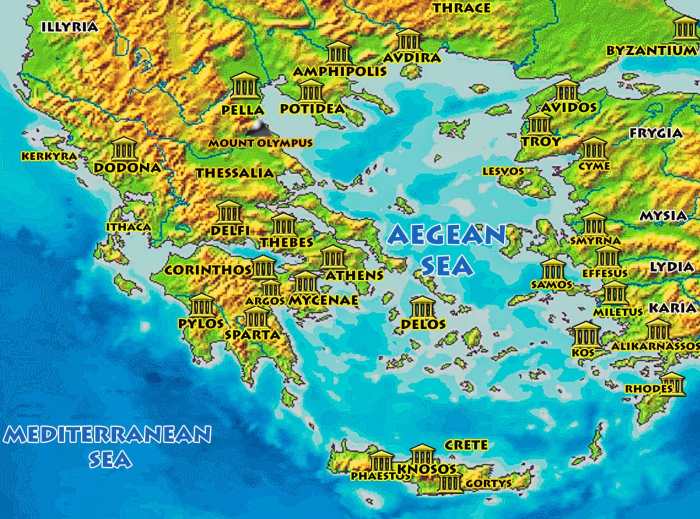
Ancient Greece was a land of great beauty and architectural splendor. Its cities were centers of learning, culture, and commerce, and its temples and other public buildings were marvels of engineering and art.
The most important city in ancient Greece was Athens. It was the birthplace of democracy and the home of some of the world’s greatest philosophers, artists, and writers. The city was dominated by the Acropolis, a hilltop citadel that was home to several important temples, including the Parthenon.
Sparta
Sparta was another major city in ancient Greece. It was a military state that was known for its fierce warriors. The Spartans were renowned for their discipline and their courage in battle.
Thebes
Thebes was a wealthy city that was located in central Greece. It was the home of the poet Pindar and the playwright Aeschylus.
Corinth
Corinth was a commercial city that was located on the isthmus of Corinth. It was a major center of trade and commerce, and it was also home to a large temple dedicated to the goddess Aphrodite.
Architectural Wonders
In addition to its cities, ancient Greece was also home to some of the world’s most famous architectural wonders. These include the Parthenon, the Acropolis, and the Temple of Zeus at Olympia.
The Parthenon was a temple that was built in Athens in the 5th century BC. It was dedicated to the goddess Athena, and it is considered to be one of the most beautiful buildings in the world.
The Acropolis was a hilltop citadel that was located in Athens. It was home to several important temples, including the Parthenon.
The Temple of Zeus at Olympia was a temple that was built in Olympia in the 5th century BC. It was dedicated to the god Zeus, and it was one of the largest temples in Greece.
Political and Social Structure
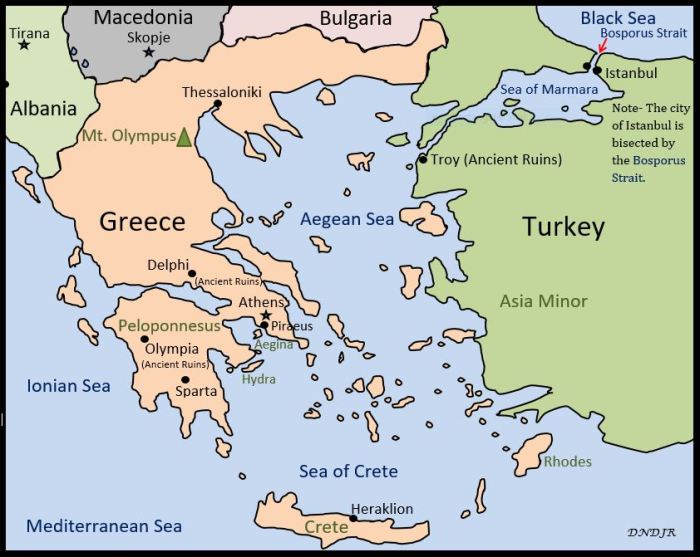
Ancient Greece was a diverse region, with many different city-states, each with its own unique political and social structure. However, there were some common features across all of these city-states.
Forms of Government
The most common form of government in ancient Greece was democracy, in which all citizens had a say in how the city-state was run. However, there were also other forms of government, such as oligarchy, in which power was held by a small group of wealthy and powerful people, and tyranny, in which power was held by a single individual.
Social Structure
The social structure of ancient Greece was based on citizenship. Citizens were the only people who had full rights and privileges, while non-citizens, such as slaves and women, had fewer rights.
Citizens
Citizens were the most important members of society. They had the right to vote, hold office, and own property. They were also expected to serve in the military.
Slaves
Slaves were the lowest class of society. They were owned by citizens and had no rights. They could be bought and sold, and they could be forced to work long hours in dangerous conditions.
Women
Women had few rights in ancient Greece. They were not allowed to vote, hold office, or own property. They were also expected to obey their husbands.
Laws and Regulations
Ancient Greek society was governed by a complex system of laws and regulations. These laws covered everything from criminal behavior to religious practices.
One of the most important laws in ancient Greece was the law of Solon, which was passed in the 6th century BC. This law established a system of justice that was based on the principle of equality before the law.
Economic and Cultural Achievements
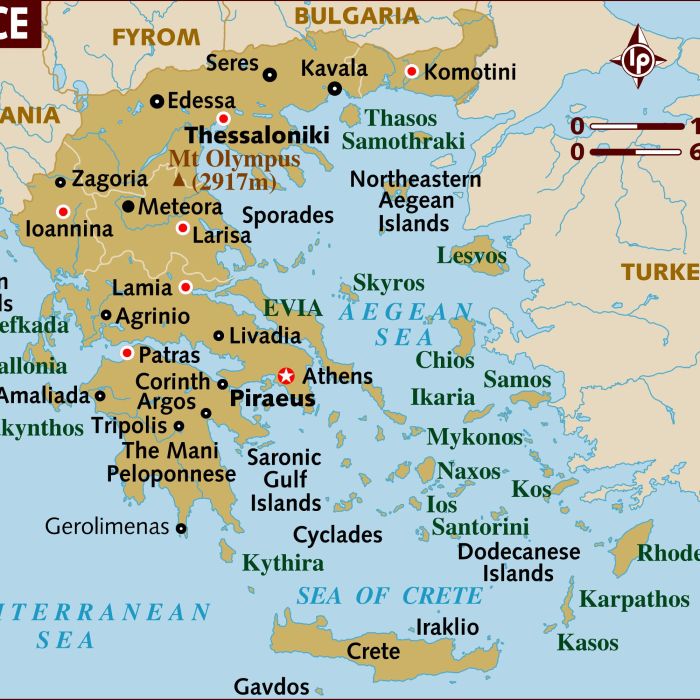
Ancient Greece was a thriving hub of economic and cultural activity. Agriculture, trade, and manufacturing formed the backbone of the economy, while philosophy, literature, art, and science flourished in the intellectual and cultural sphere.
Economic Activities
Agriculture was the primary economic activity in ancient Greece. The fertile soil and Mediterranean climate allowed for the cultivation of crops such as wheat, barley, olives, and grapes. These crops formed the basis of the Greek diet and were also exported to other regions.
Trade was another important economic activity. Greek merchants sailed throughout the Mediterranean, trading goods such as pottery, textiles, and wine. The city of Athens became a major trading center, and its port, Piraeus, was one of the busiest in the ancient world.
Manufacturing also played a significant role in the Greek economy. Greek artisans were skilled in working with metals, wood, and stone. They produced a wide range of goods, including weapons, armor, pottery, and sculptures.
Navigating the intricate tapestry of ancient Greece is made easier with a labeled map. Trace the meandering rivers, towering mountains, and bustling city-states. Transitioning to a different realm, the command rocker on dress blues represents a symbol of authority and honor.
Returning to our map of ancient Greece, the labeled landmarks guide us through the cradle of civilization, unlocking its rich history and enduring legacy.
Cultural Achievements
Ancient Greece was a cradle of civilization and made significant contributions to Western culture. Greek philosophers, such as Socrates, Plato, and Aristotle, developed ideas that have shaped Western thought for centuries. Greek literature, including the works of Homer, Sophocles, and Euripides, is still widely read and studied today.
Greek art is also highly regarded. Greek sculptors and architects created some of the most iconic works of art in history, including the Parthenon and the Statue of Zeus at Olympia. Greek science also made significant advances. Greek scientists, such as Pythagoras, Euclid, and Archimedes, developed theories and principles that laid the foundation for modern science.
Contributions of Greek Philosophers and Scientists
| Philosopher/Scientist | Contributions |
|---|---|
| Socrates | Developed the Socratic method of questioning |
| Plato | Established the Academy in Athens |
| Aristotle | Wrote on a wide range of subjects, including physics, metaphysics, and ethics |
| Pythagoras | Developed the Pythagorean theorem |
| Euclid | Wrote the Elements, a foundational work on geometry |
| Archimedes | Discovered the principle of buoyancy |
Military and Warfare
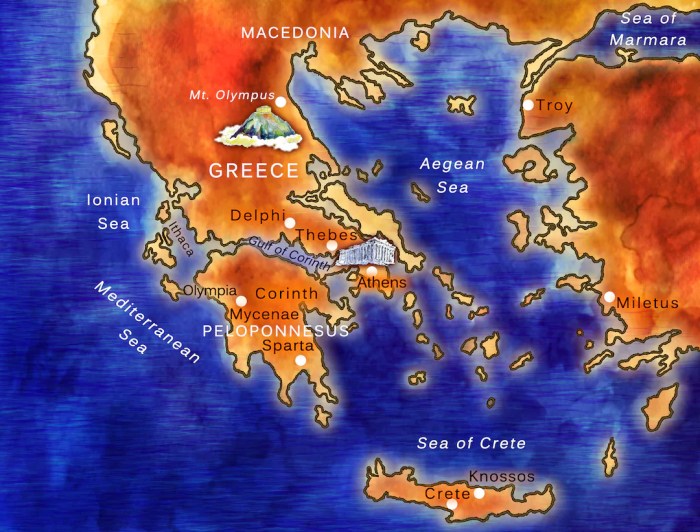
Ancient Greece was known for its formidable military prowess. Each city-state (polis) had its own independent army, and warfare was a central aspect of Greek society.
Military Organization and Tactics
The backbone of the Greek army was the hoplite, a heavily armored infantryman. Hoplites fought in a tightly packed formation called the phalanx, which presented an impenetrable wall of shields and spears. Other units included cavalry, archers, and light infantry.Greek
warfare emphasized discipline and coordination. Hoplites were trained to move and fight as a cohesive unit, relying on their shields and spears to protect themselves and their comrades. They also employed siege engines and naval warfare, demonstrating their versatility in military tactics.
Major Wars and Battles
The ancient Greeks fought numerous wars and battles, including:
Persian Wars (499-449 BC)
The Greeks successfully defended against two Persian invasions, cementing their reputation as fierce warriors. Notable battles include the Battle of Marathon and the Battle of Salamis.
Peloponnesian War (431-404 BC)
A devastating conflict between Athens and Sparta, the Peloponnesian War resulted in the decline of Athenian power. Key battles include the Battle of Plataea and the Battle of Aegospotami.
Military Conquests
Greek military might extended beyond their borders. Alexander the Great, King of Macedon, conquered a vast empire that stretched from Greece to India in the 4th century BC. His conquests spread Greek culture and influence throughout the known world.[Map of ancient Greece showing the extent of its military conquests could be included here]
Religion and Mythology
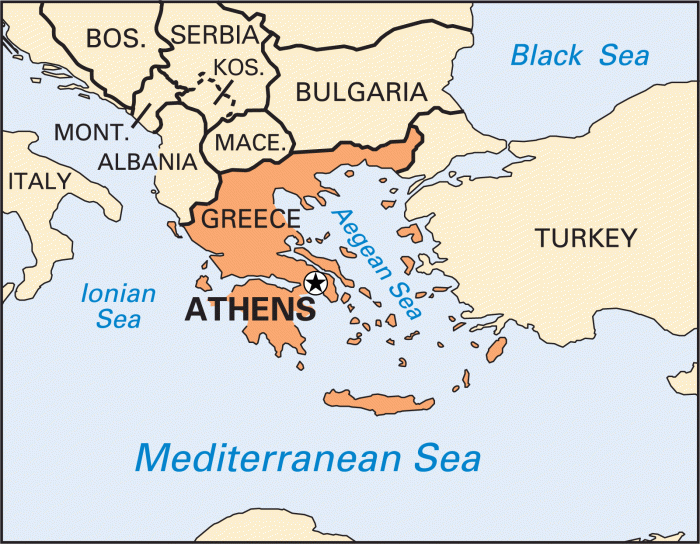
Religion played a central role in ancient Greek society, shaping their culture, art, literature, and drama. The Greeks believed in a pantheon of gods and goddesses who controlled various aspects of life and nature.
Major Gods and Goddesses
The major gods of the Greek pantheon included:
- Zeus: King of the gods, god of thunder and lightning
- Poseidon: God of the sea, earthquakes, and horses
- Hades: God of the underworld and the dead
- Apollo: God of music, poetry, healing, and prophecy
- Artemis: Goddess of the hunt, wilderness, and childbirth
- Ares: God of war
- Aphrodite: Goddess of beauty, love, and desire
- Hermes: Messenger of the gods, god of travelers and thieves
li>Athena: Goddess of wisdom, war, and crafts
These gods were often depicted in art and literature, and their stories were woven into Greek mythology.
Role of Religion
Religion influenced many aspects of Greek life. Religious festivals and ceremonies were held throughout the year, and people made offerings to the gods to seek their favor. Religion also provided a framework for morality and ethics, and it influenced the development of Greek philosophy and science.
Table of Gods and Goddesses
| God/Goddess | Domain | Symbols ||—|—|—|| Zeus | King of the gods, thunder, lightning | Eagle, thunderbolt || Poseidon | Sea, earthquakes, horses | Trident, dolphin || Hades | Underworld, dead | Helm of darkness, three-headed dog Cerberus || Athena | Wisdom, war, crafts | Owl, olive tree || Apollo | Music, poetry, healing, prophecy | Lyre, laurel wreath || Artemis | Hunt, wilderness, childbirth | Bow and arrow, deer || Ares | War | Spear, shield || Aphrodite | Beauty, love, desire | Dove, rose || Hermes | Messenger of the gods, travelers, thieves | Winged sandals, caduceus |
Legacy and Influence
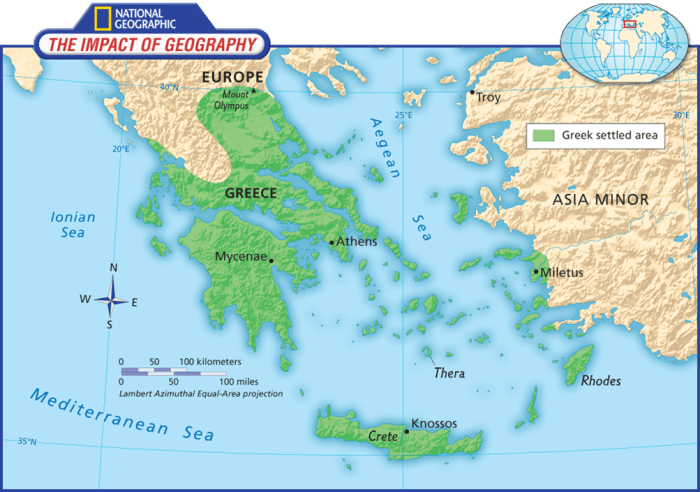
Ancient Greece left an indelible mark on Western civilization. Its ideas, achievements, and cultural practices continue to shape modern thought, art, and politics.
Ancient Greek philosophy, particularly the works of Plato and Aristotle, laid the foundation for Western philosophical thought. Their ideas about ethics, politics, and metaphysics continue to be debated and discussed today.
Literature and Art
Greek literature, from Homer’s epic poems to the tragedies of Sophocles and Euripides, has had a profound influence on Western literature. Its themes of love, loss, and the human condition continue to resonate with readers today.
Greek art, with its emphasis on realism and ideal beauty, has inspired artists for centuries. From the sculptures of Phidias to the paintings of the Renaissance, Greek artistic principles have shaped the development of Western art.
Democracy and Politics, Labeled map of ancient greece
Ancient Greece is often credited with the invention of democracy. The Athenian system of government, in which citizens participated directly in decision-making, has influenced the development of democratic systems around the world.
Greek political thought, particularly the ideas of Plato and Aristotle, has had a major impact on Western political philosophy. Their ideas about the nature of the state and the role of the individual continue to be influential today.
Science and Technology
Ancient Greek scientists and mathematicians made significant contributions to science and technology. Euclid’s geometry, Archimedes’ principles of buoyancy, and the medical discoveries of Hippocrates have had a lasting impact on scientific thought.
Legacy in Contemporary Society
Ancient Greek culture continues to inspire and influence contemporary society in numerous ways. From the study of Greek classics in schools to the use of Greek architectural styles in modern buildings, ancient Greece remains a source of inspiration and cultural enrichment.
Essential FAQs: Labeled Map Of Ancient Greece
What is the significance of ancient Greece?
Ancient Greece is renowned as the birthplace of democracy, philosophy, literature, and art, laying the foundation for many aspects of Western civilization.
What were the major cities of ancient Greece?
Athens, Sparta, Thebes, and Corinth were among the most prominent cities, each playing a pivotal role in the political, cultural, and military landscape of the time.
What were the key events in ancient Greek history?
From the Trojan War to the rise and fall of the Athenian Empire, ancient Greece witnessed numerous pivotal events that shaped its destiny and influenced the course of history.

